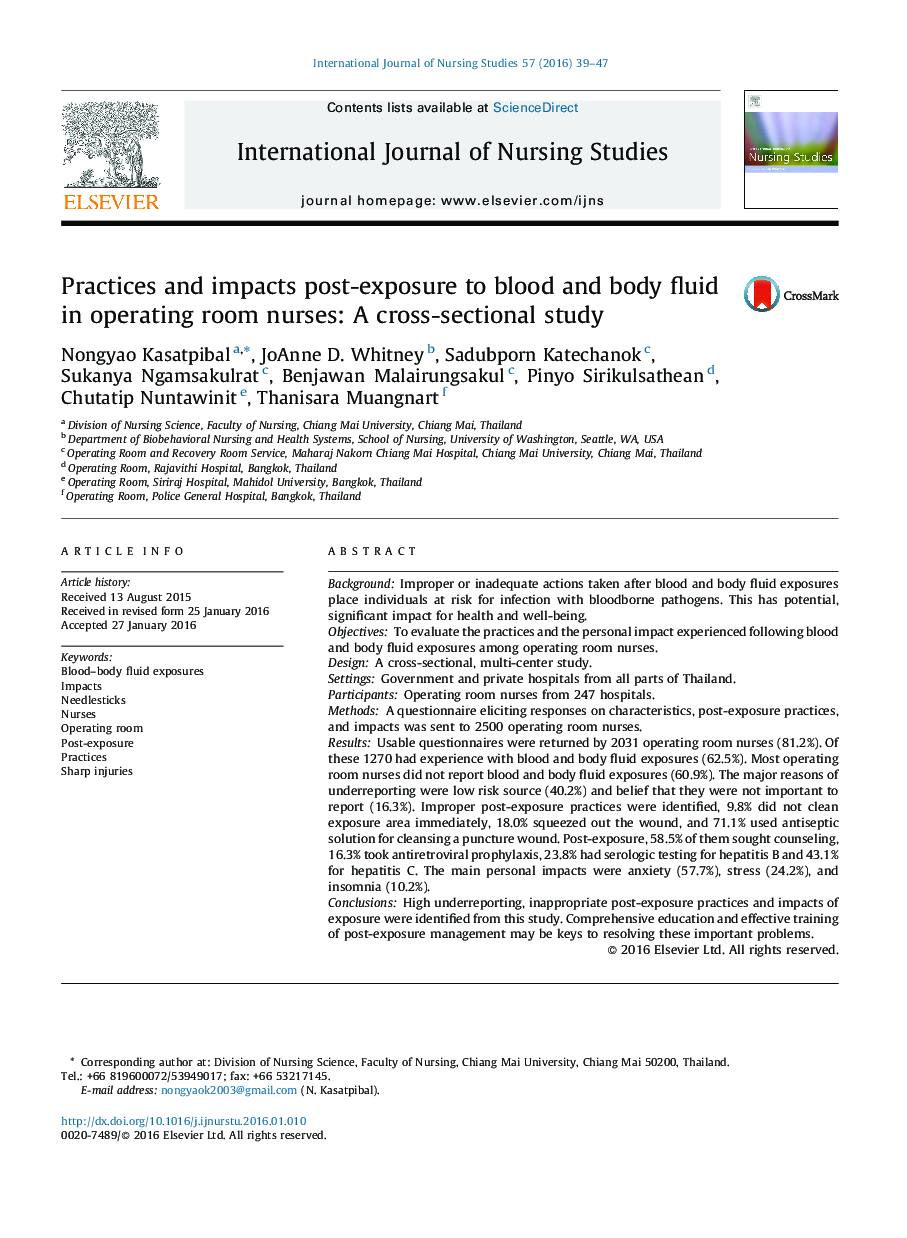| Article ID | Journal | Published Year | Pages | File Type |
|---|---|---|---|---|
| 1075987 | International Journal of Nursing Studies | 2016 | 9 Pages |
BackgroundImproper or inadequate actions taken after blood and body fluid exposures place individuals at risk for infection with bloodborne pathogens. This has potential, significant impact for health and well-being.ObjectivesTo evaluate the practices and the personal impact experienced following blood and body fluid exposures among operating room nurses.DesignA cross-sectional, multi-center study.SettingsGovernment and private hospitals from all parts of Thailand.ParticipantsOperating room nurses from 247 hospitals.MethodsA questionnaire eliciting responses on characteristics, post-exposure practices, and impacts was sent to 2500 operating room nurses.ResultsUsable questionnaires were returned by 2031 operating room nurses (81.2%). Of these 1270 had experience with blood and body fluid exposures (62.5%). Most operating room nurses did not report blood and body fluid exposures (60.9%). The major reasons of underreporting were low risk source (40.2%) and belief that they were not important to report (16.3%). Improper post-exposure practices were identified, 9.8% did not clean exposure area immediately, 18.0% squeezed out the wound, and 71.1% used antiseptic solution for cleansing a puncture wound. Post-exposure, 58.5% of them sought counseling, 16.3% took antiretroviral prophylaxis, 23.8% had serologic testing for hepatitis B and 43.1% for hepatitis C. The main personal impacts were anxiety (57.7%), stress (24.2%), and insomnia (10.2%).ConclusionsHigh underreporting, inappropriate post-exposure practices and impacts of exposure were identified from this study. Comprehensive education and effective training of post-exposure management may be keys to resolving these important problems.
